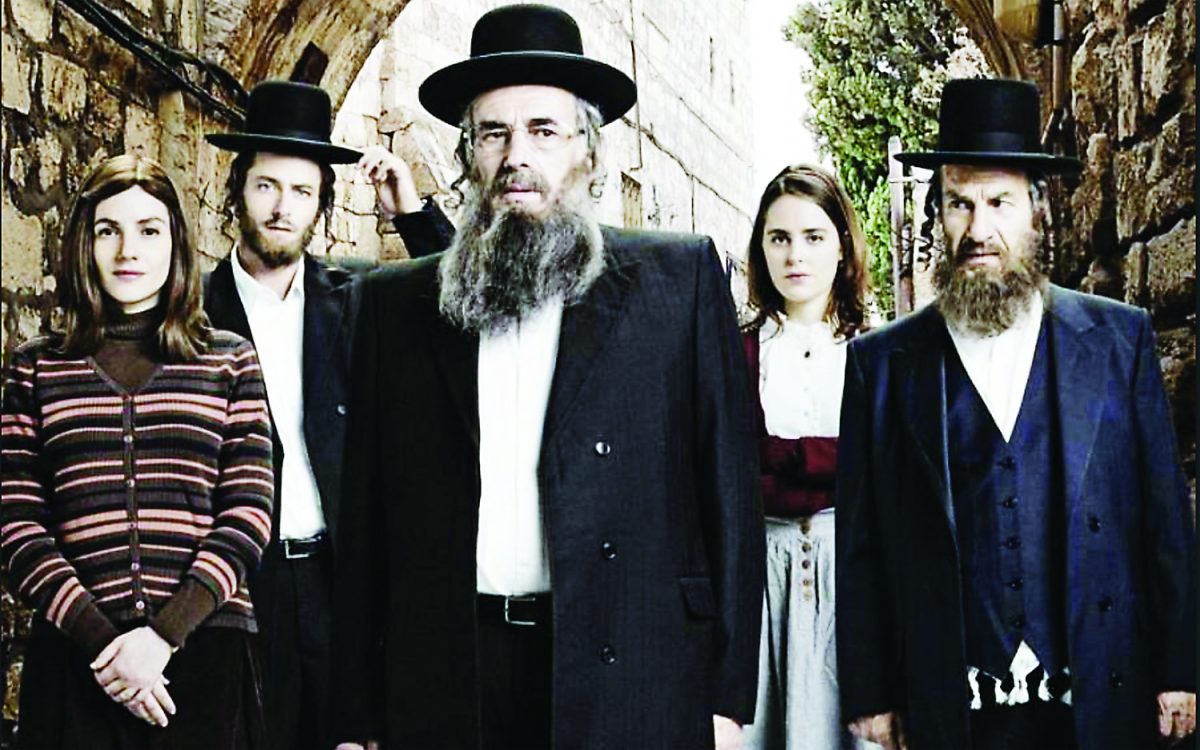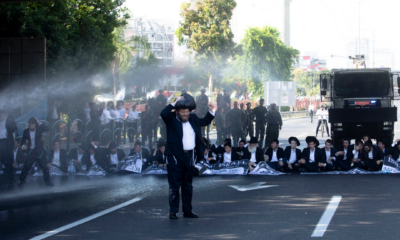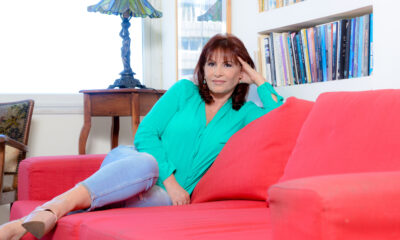
Featured Item

Shtisel creator a hero among Haredim
When a former ultra-Orthodox student at the illustrious Ponevezh Yeshiva created one of Israel’s biggest international television series, he was worried he would be ostracised by the community in which he grew up.
But Shtisel’s award-winning co-creator, writer and director Yehonatan Indursky, told a recent webinar brought to South Africa by Sydenham Shul, that the opposite had happened.
Shtisel became a huge success amongst the ultra-Orthodox in Israel. “Before the show was aired, I was worried that I wouldn’t be able to return to Jerusalem, and that the ultra-Orthodox sector would be upset with the way it was portrayed, but the opposite happened,” Indursky said. “This was the first time they were able to see themselves portrayed in an authentic way without framing that exoticised them or placed them within existing stereotypes.”
Indursky spoke of his own childhood in a Haredi Jerusalem neighbourhood. “In Israel today, growing up in a Haredi house means you are completely isolated from the rest of Israeli society which is mostly secular,” he said.
While he said he had a largely beautiful childhood, some memories were less than happy. “Yet even these I remember with a lot of nostalgia,” he said. “When I was 14, if I wanted to have a meaningful life, I had to be responsible and, to some extent, give up on my childhood. I had to leave the games, the fiction books I loved, the friends and the fun, and devote my time to studying the Talmud and rising to imminence and spirituality.”
He was later accepted to Israel’s most respected all-male yeshiva, Ponevezh. While his parents were proud of him, they worried how their little boy would survive in the big, demanding yeshiva, where everyone was motivated by the desire to become the next big rabbi.
“Before you get there, you think that you are worth something, but each student that comes is the best in his yeshiva. For me, it was a moment of crisis, of fracture, and the moment that I realised that I wouldn’t be the next big rabbi. This is what led to my departure from the yeshiva three years later.”
While his yeshiva years were difficult, Indursky said he wouldn’t give up a moment spent there. “When I was 19, something in secular culture fascinated me though. People, books, and art interested me more. Life in the yeshiva revolved around intellect, but it didn’t enable me to express myself through emotion. So, I decided to search for a new home. My biggest fear was how my parents would deal with my decision.” Yet his loving parents accepted his choice, understanding that they needed to let their son be who he was.
Indursky found his passion in cinema, sometimes attending three screenings in a row. “I felt how each film I saw was changing me into a new person.” While he initially felt the world of cinema was beyond his reach, Indursky was inspired when he attended screenings of the work of late Israeli documentary filmmaker, David Perlov. It was then that he realised he could also create films.
Indursky attended the Sam Spiegel Film and Television School in Jerusalem. Working on an assignment one day, he dressed up in ultra-Orthodox clothing to film at a Haredi shul. “On the bus, I saw my classmate from the film school. We looked at each other, but because of my ultra-Orthodox dress code, he didn’t recognise me. But more than that, he didn’t really see me, it was like I was transparent. There was a sense of alienation that I couldn’t explain to myself. Suddenly, I remembered and understood how people in Israel look at the ultra-Orthodox. It’s not hatred, and it’s also not alienation, I think they simply don’t see them.” It was this experience that inspired Indursky to create Shtisel.
Soon after graduating, he collaborated with his Shtisel co-creator, Ori Elon, to write a script that went beneath the surface of a Haredi family. “We see tens or hundreds of people each day, many of whom we don’t even notice,” said Indursky. “Yet we remember people when we know their stories.
“I can say almost eight years after the first season was aired, it drastically influenced how secular people approach the ultra-Orthodox in Israel, and now after it’s been seen on Netflix, all over the world,” said Indursky. “Because they see the person behind the stereotype.”
“I truly believe that Shtisel isn’t a series about ultra-Orthodox people, but one that deals with human beings,” he said. “The story deals with conflicts which aren’t necessarily related to the ultra-Orthodox way of life but which can be understood and identified with by everyone.”
Therein lies its power.
“Not only could I return home, but I became a kind of hero among the people in my hometown,” he said. Through his art, series protagonist Akiva Shtisel goes through a similar journey. “Sometimes we discover that the only way to return home is through a story,” said Indursky. “In your story – and in every story – home remains exactly how you left it. You can leave home endless times, but it will always wait for you. The most important thing is that your mother is waiting inside with soup, bread, and of course, kugel.”
- Season three of ‘Shtisel’ is being filmed in Israel.








